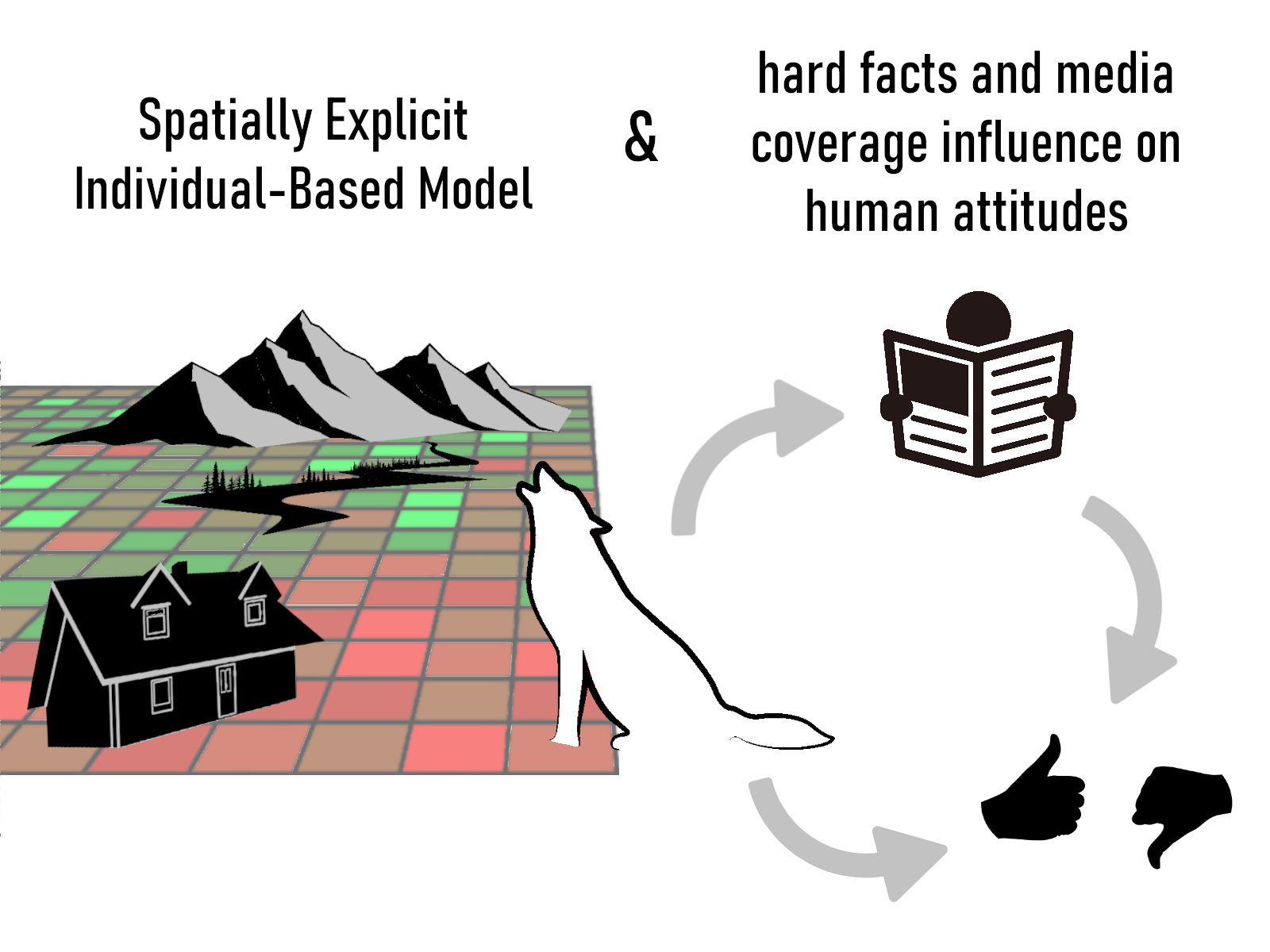- Personal menu
- Profile
- Phd thesis
- Research activities
- Training
- Publications
- Other activities
- Other content
Davide Ravaglia
- 505306
- Phd: 39th cycle
- Department of Life Sciences and Systems Biology
- Matriculation number: 939897

Phd thesis
The core of my research involves updating a Spatially Explicit Individual-Based Model, with the alpine wolf population as the model species. This model, first developed by Marucco and McIntire, will be instrumental in exploring the Favorable Conservation Status (FCS). The concept of FCS, utilized in the Habitats Directive, characterizes a scenario where a species thrives in its natural habitat and is expected to persist in the future. This notion often sparks debates, particularly for species like large carnivores, given their wide-ranging presence across borders. The model will play a pivotal role in unraveling the conditions under which the Italian Alpine wolf population achieves FCS, also aiding in assessing the impact of various management scenarios. During the first year of my doctoral program, I obtained the necessary training with the model through an ad hoc course taught by two leading experts in the field, V. Grimm and S. Railsback. To gain the necessary proficiency on this specific kind of model, I developed a similar toy model and tested variations to the main model to understand its behavior.
The other aspect of my research will explore, in collaboration with Francesca Marucco and Guillaume Chapron, the intricate network of connections between human attitudes, media coverage, and electoral seasons. This investigation aims to shed light on the complex human dimensions associated with this highly controversial and politically charged species. We have already ventured into this field within the first year, analyzing the drivers of media opinion by exploiting a dataset of more than 4,000 articles obtained in part through textual analysis software I developed. In doing so, we identified spatiotemporal drivers related to wolf recolonization and human dynamics, such as the presence of alpine pastures and the proximity to political elections.
Both of these fields of research are made possible by the datasets collected mainly within the contexts of the European LIFE WolfAlps and LIFE WolfAlps projects and the work of their partners.
I am eager to delve into these complexities and actively contribute to ongoing discussions on wildlife conservation and human-wildlife interactions. Please feel free to reach out if you have any questions or would like more detailed information about my current research.

Research activities
Scientific publications
- Ravaglia, D., Ferrario, V., De Gregorio, C., Carugati, F., Raimondi, T., Cristiano, W., ... & Gamba, M. (2023). There you are! Automated detection of indris’ songs on features extracted from passive acoustic recordings. Animals, 13(2), 241.
- Valente, D., Ravaglia, D., Ferrario, V., De Gregorio, C., Carugati, F., Raimondi, T., ... & Gamba, M. (2024). Automatic detection of indris songs using convolutional neural networks.




